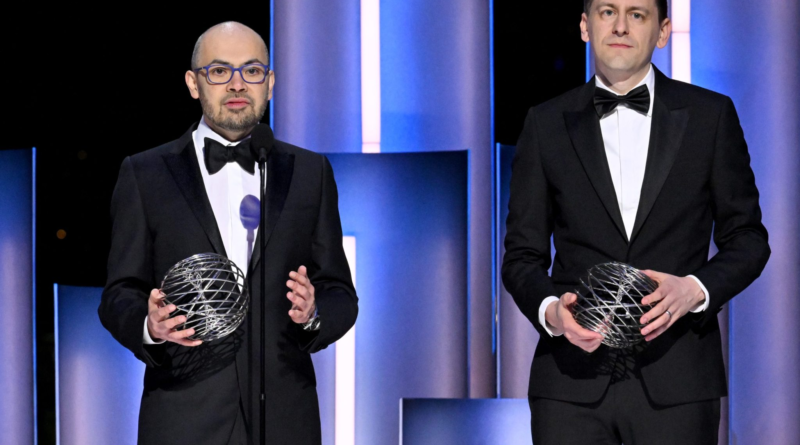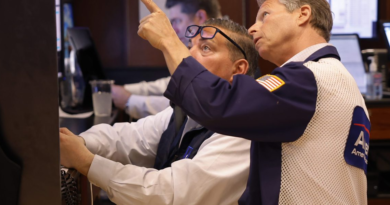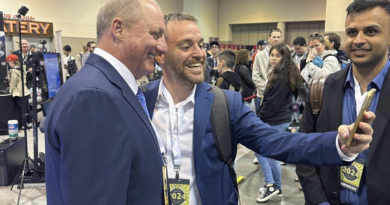Google DeepMind leaders Hassabis and Jumper win Nobel Prize for Chemistry
On Wednesday, the Royal Swedish Academy of Sciences announced that Demis Hassabis and John Jumper are recipients of this year’s Nobel Prize in Chemistry. Hassabis is the CEO of Google’s DeepMind AI unit, while Jumper is a director there.
The pair received the award for their work on the AlphaFold 2 AI model, which in 2020 stunned the scientific world with its ability to correctly predict the structure of almost all known proteins from their DNA sequences. Previously, computer software was much less accurate at predicting protein structures, while imaging methods to discover the shape of proteins were time-consuming and costly.
This breakthrough was hugely impactful since proteins are the engines behind most biological processes, with their shape determining their function. Among other things, being able to predict the shape of a protein unlocks better understanding of disease and could enable researchers to more quickly develop new drugs.
AlphaFold 2 helped solve an almost 50-year grand challenge in biology first raised by Nobel laureate chemist Christian Anfisen, who in 1973 suggested that it should be possible to determine a protein’s structure from its DNA sequence alone.
“Since their breakthrough, AlphaFold 2 has been used by more than two million people from 190 countries,” the Academy said in a statement. “Among a myriad of scientific applications, researchers can now better understand antibiotic resistance and create images of enzymes that can decompose plastic.”
AlphaFold 2 has also been used to help researchers find potential treatments for neglected tropical diseases, such as Chagas Disease, which afflicts millions of people in less developed countries, as well as to explore the structure of the pores that allow material to pass to and from the nucleus of cells.
“I’ve dedicated my whole life to advancing AI because I really believe in the potential it has to improve the lives of billions of people,” said Hassabis in a Wednesday press conference, while proposing that the AlphaFold 2 breakthrough would be seen as the “first proof point” of this potential.
“It’s so incredible and so unreal at this moment,” said Jumper in the press conference. “This prize represents the promise of computational biology… that we’re ultimately going to make people healthy because of the work we do with AI.”
Hassabis said the call from Sweden had been delayed by the fact that the Academy didn’t have either recipient’s phone number. “They managed to get hold of my wife’s number, and they called her on Skype or something, and she put it down several times and they kept persisting,” he recounted.
Hassabis and Jumper share this year’s award with David Baker, a scientist at the University of Washington, who pioneered the creation of entirely new proteins two decades ago. Baker gets half the prize money of 11 million Swedish kronor ($1.06 million), while the DeepMinders get a quarter each.
“This is a monumental achievement for AI, for computational biology, and science itself,” the DeepMind team posted on X.
It’s clearly a big year for AI at the most prestigious scientific awards. The Nobel Prize for Physics was on Tuesday given to Geoffrey Hinton and John Hopfield for their work in the development of artificial neural networks—the foundation of today’s AI systems, including AlphaFold 2.
Hinton was also a leading figure in Google’s AI efforts as part of its Brain unit (which developed the transformer deep-learning technology that enables today’s generative AI). Shortly after Google merged the Brain unit with DeepMind in April last year, Hinton quit so he could warn the world of AI’s risks.
Hinton and Jumper’s award was controversial among some physicists, who saw the links between their field and AI as tenuous. The framing of Wednesday’s chemistry Nobel is far clearer, rewarding the development of a specific AI tool that is rapidly transforming biological research.
Since its initial work on AlphaFold 2, DeepMind has continued to make advances in biology. AlphaFold 3, a sucessor model to AlpahFold 2, can predict the structures and interactions of not just proteins, but other molecules found in living things too. Last month, it unveiled AlphaProteo, a system that provide recipes for synthetic proteins that will bind with any given target molecule. This could become a key tool for drug development. It has also debuted AlphaMissense, an AI model that can predict the effect of various mutations in human DNA.
Hassabis is the cofounder of DeepMInd, which has as its mission the creation of AGI, or artificial general intelligence, a single AI system that would be as smart as a human. He has been fascinated with the idea of protein folding since his days as a student at the University of Cambridge. Google acquired DeepMind in 2014, but Hassabis remained CEO of the separate unit and he continues to lead the merged Google DeepMind research division.
Jumper, who initially trained as a physicist, began working on computation biology at D.E. Shaw Research in New York. He later got a Ph.D. in computational biophysics from the University of Chicago. When DeepMind began working on trying to crack Anfinsen’s protein folding problem, it hired Jumper to lead the team working on what became AlphaFold. Jumper continues to lead a group within DeepMind that is researching AI methods related to proteins and other biology questions.
Data Sheet: Stay on top of the business of tech with thoughtful analysis on the industry’s biggest names.
Sign up here.




